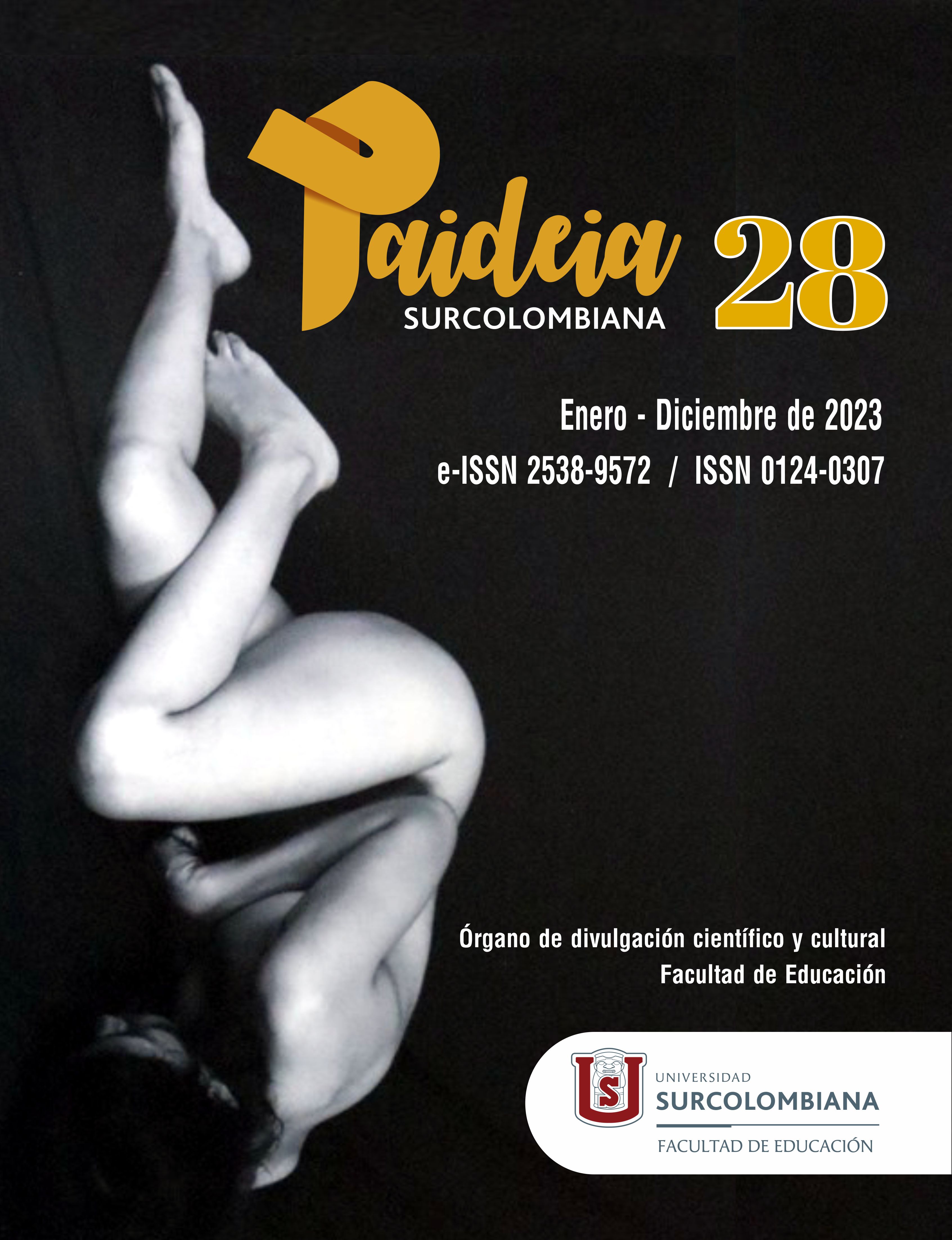Music from the piano, guitar and singing as a didactic strategy to take advantage of the free time of the 6th grade students of the Madre Bernarda Education Institution
##plugins.themes.bootstrap3.article.main##
The present research focuses on a didactic and pedagogical proposal from musical and artistic training, with the intention of influencing the comprehensive training and transforming the coexistence of the children of the sixth grades of the Madre Bernarda Education Institution, located in the municipality of Ciénaga de Oro. The above, thus enabling a space for student integration; taking advantage of ther free time; causing them to avoid bad habits, such as drug addiction and crime; strengthening values for coexistence; contributing to tolerance, respect, and recognition of the other; developing physical, motor, sensory, emotional and coexistence skills; and favoring the collective construction of values through musical activities. In this way, the development of this research work becomes a transformative contribution, from the framework of the Artistic-Music area to the Free Time Project (PTDA), the Transversal Classroom Project, and the Institutional Educational Project (PEI, Madre Bernarda Education Institution, 2020).
This work is part of the methodological perspective of qualitative research, focusing on what is related to the events that surround the object of study and the environment in which such events take place, thus allowing, through didactic strategies based on music, boys and girls assume peaceful responses to aggressive behaviors that occur in their school environment and outside of it.
Downloads
##plugins.themes.bootstrap3.article.details##
Díaz, F., y Hernández, G. (2010). Estrategias docentes para un aprendizaje significativo: una interpretación constructivista (3era ed.). McGraw-Hill.
García Cárdenas, J. D. (2015). Post-conflicto y la revolución del arte en la sociedad colombiana. Lúdica Pedagógica, 2(22), 33-43. https://doi.org/10.17227/01214128.22ludica33.43
Hernández-Sampieri, R., y Mendoza, C. (2018). Metodología de la investigación. Las rutas cuantitativa, cualitativa y mixta. Editorial McGraw Hill Education. https://virtual.cuautitlan.unam.mx/rudics/?p=2612
Mora, Toscano y Fuentes (2012). La música como herramienta facilitadora del aprendizaje del inglés como lengua extranjera. Teoría de la Educación. Revista Interuniversitaria, 24(2), 197-213. https://doi.org/10.14201/10361
Institución Educativa Madre Bernarda. (2020). Proyecto Educativo Institucional (PEI). http://186.117.156.149:8081/_contenido/noticias/2022/Marzo/IE_Madre_Bernarda_Cienaga_de_Oro.pdf
Reyes y Tinoco (2012), Música como estrategia facilitadora del proceso enseñanza aprendizaje [Tesis pregrado]. Universidad Rafael Landívar. http://biblio3.url.edu.gt/Tesario/2014/05/84/Vides-Andrea.pdf
Sarrate, M. (s.f.). El Ocio, espacio de inserción personal y social. Página de Salud Pública del Ayuntamiento de Madrid. https://madridsalud.es/el-ocio-espacio-de-insercion-personal-y-social/
Trucco, D., y Ullmann, H. (2015). Juventud: realidades y retos para un desarrollo con igualdad. Comisión Económica para América Latina y el Caribe (CEPAL). https://doi.org/10.18356/1d4fe2ef-es
Waichman, P. (2004). Tiempo libre y recreación: un desafió pedagógico (3a. ed). Ediciones PW.
Wilchez, K., y Díaz, M. (2016). Análisis del tiempo libre y de ocio en los estudiantes de administración de empresas de la Universidad de Cartagena [Tesis de pregrado]. Universidad de Cartagena.














